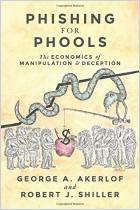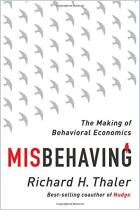Únase a getAbstract para acceder al resumen.

Únase a getAbstract para acceder al resumen.
George A. Akerlof and Rachel E. Kranton
Identity Economics
How Our Identities Shape Our Work, Wages, and Well-Being
Princeton UP, 2010
¿De qué se trata?
Discover the human story of individual identity’s impact on economics.
Recommendation
Biting into an economic text often tastes like dry toast, but this book has flavor and a lot of soul. George A. Akerlof, the 2001 Nobel laureate in economics, and Rachel E. Kranton, an economics professor, showcase their innovative exposition with a refreshing style. They muster examples from playground politics to courtroom theatrics to explain how race, gender and class shape individual economic decisions. Now and then, they get stuck in academic prose and repeated explanations about the difference between their persuasive identity-based model and traditional economic analysis, but the model does persuade. The authors offer generous servings of tasty facts, chewy analysis and lively case histories. This is economics seasoned with real-life spice. getAbstract recommends their book to specialists in persuasion, consumer product managers, educators and anyone trying to read the tea leaves of economic patterns.
Summary
About the Authors
The 2001 Nobel laureate in economics, George A. Akerlof is a professor of economics at the University of California, Berkeley. He co-wrote Animal Spirits with Robert J. Shiller. Duke University economics professor Rachel E. Kranton is a scholar in the economics of networks.



















Comment on this summary